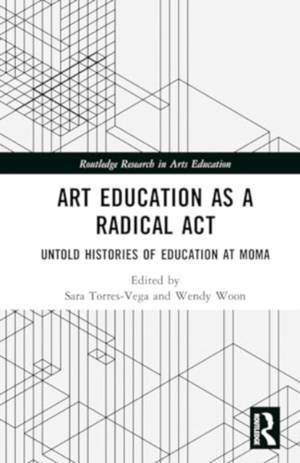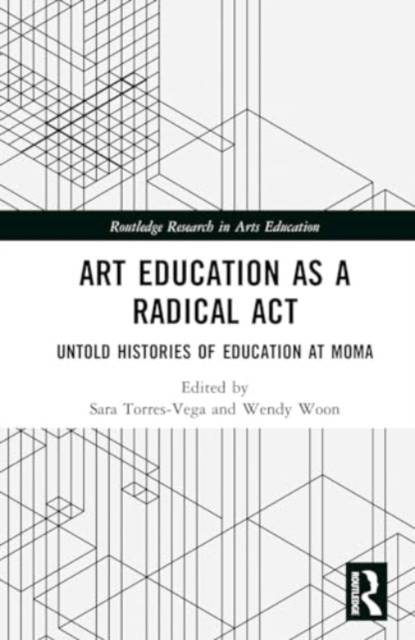
- Retrait gratuit dans votre magasin Club
- 7.000.000 titres dans notre catalogue
- Payer en toute sécurité
- Toujours un magasin près de chez vous
- Retrait gratuit dans votre magasin Club
- 7.000.000 titres dans notre catalogue
- Payer en toute sécurité
- Toujours un magasin près de chez vous
Art Education as a Radical ACT
Untold Histories of Education at MoMA
Description
This comprehensive volume highlights and centers untold histories of education at the Museum of Modern Art (MoMA) from 1937 to 2020, using the critical voices of artists, scholars, designers, and educators. Exploring these histories as transformative and paradigm-shifting in museum education, it elevates MoMA educators as vocal advocates for harnessing the educational power that museums inherently possess.
Divided into three interlinked parts, the first sheds light on the early educational endeavors of the museum while analyzing the context of art education in the United States. The second part focuses on the tenures of Victor D'Amico and Betty Blayton, utilizing the MoMA archives as a primary resource. It includes essays by Ellen Winner, Luis Camnitzer, Susan E. Cahan, Michelle Millar Fisher, HECTOR (Jae Shin & Damon Rich), Gregory Sholette, Carol Duncan, Moreen Maser, Nana Adusei-Poku, Carmen Mörsch, Rika Burnham, Donna M. Jones, and José Ortiz. The third part presents the perspectives of William Burback, Philip Yenawine, Patterson Sims, Deborah F. Schwartz, and Wendy Woon as former MoMA Directors of Education in their own words and considers the forces that shaped their work. This timely and unique exploration ultimately aims to trace and understand the fundamental and evolving concerns of a seemingly underexamined profession constantly striving to maintain relevance in an environment marked by institutional, social, and political uncertainty. Exploring the radical acts undertaken to keep the museum true to its original promise, it delineates the paradox whereby education is both central and invisible to the identity of MoMA and museums more broadly and re-centers the conception of the museum as an educational institution.
It is designed for scholars, researchers, and post-graduate students interested in arts education, visual literacy, museum studies, and communication studies.
Spécifications
Parties prenantes
- Editeur:
Contenu
- Nombre de pages :
- 288
- Langue:
- Anglais
- Collection :
Caractéristiques
- EAN:
- 9781032611549
- Date de parution :
- 20-05-24
- Format:
- Livre relié
- Format numérique:
- Genaaid
- Dimensions :
- 152 mm x 229 mm
- Poids :
- 576 g






